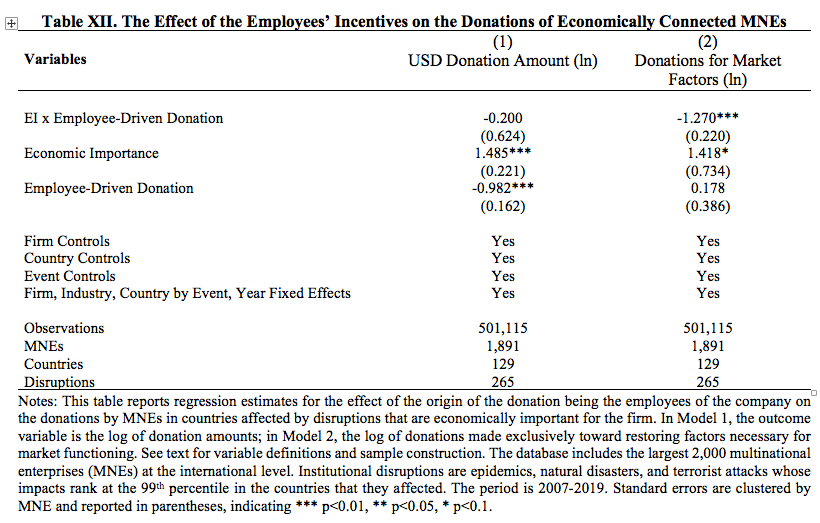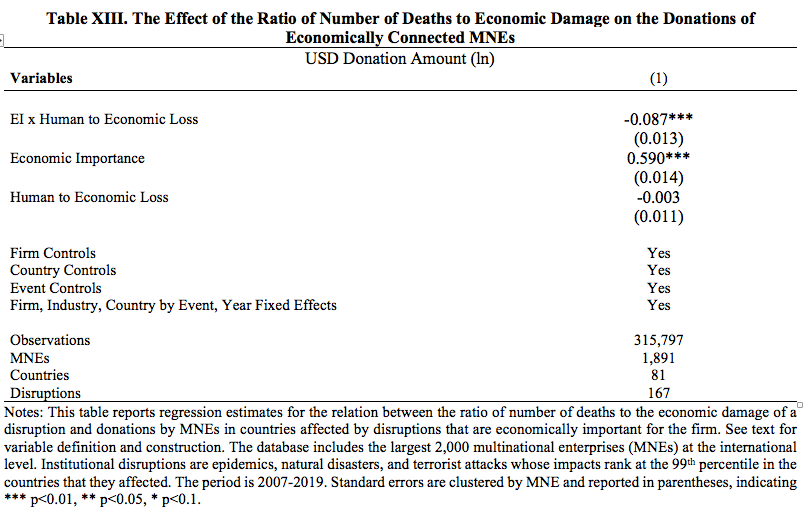Is it the Employees’ Altruism or Reciprocity?
Firms may donate in response to social preferences from internal stakeholders. For instance, the reciprocal motives of employees may motivate the philanthropic behavior of MNEs (Charness and Rabin 2002, Fehr and Fischbacher 2002, Small and Simonsohn 2008). The risk of this confounder is important in our setting given that research has shown that people react more strongly to shock-related losses than to chronic conditions (Small 2010). We test this motive and find that the coefficient of the interaction of employee-driven donation with economic importance is statistically significant and negative suggesting that when our studied MNEs donated following an initiative by employees, the donation amount was significantly lower than when not. We find a similar direction when using donations aimed at restoring the markets necessary for market functioning as outcome variable.

To further test the argument that business decision makers donate to satisfy altruistic motives, we incorporate a ratio of human to economic loss, operationalized as the number of deaths divided by economic damage. The measure captures the relative humanitarian damage. Results indicate that the amount of donation decreases in the interaction of human to economic loss with economic importance. The result is consistent with the skewness of donations to institutional disruptions with substantial economic costs vis-à-vis human impacts across the events in the period 1997 to 2019.
